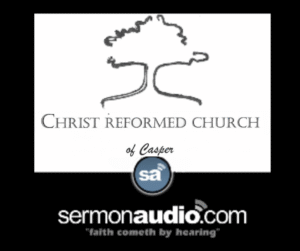LORD’S DAY 22
- What comfort do you receive from the “resurrection of the body”?
That not only my soul after this life shall be immediately taken up to Christ its Head,1 but also that this my body, raised by the power of Christ, shall be reunited with my soul, and made like the glorious body of Christ.2
[1] Lk. 23:43; Phil. 1:21–23. [2] 1 Cor. 15:53–54; Job 19:25–27; 1 Jn. 3:2.
- What comfort do you receive from the article “life everlasting”?
That, inasmuch as I now feel in my heart the beginning of eternal joy,1 I shall after this life possess complete blessedness, such as eye has not seen, nor ear heard, neither has entered into the heart of man,2 therein to praise God forever.3
[1] 2 Cor. 5:2–3. [2] 1 Cor. 2:9. [3] Jn. 17:3; *Rom. 8:23; *1 Pet. 1:8.
A Life of Hope
The Christian life is a life of hope. Peter tells the saints in 1 Peter 3:15 to be ready to give an answer for the hope that lies within us. Hope, according to Peter, will distinguish the Christian from the world and prompt the discussions that give the Christian an opportunity to witness to the gospel. Jesus says in another place that love is the characteristic that will identify one as a disciple of Christ. These two are closely related, however, for the love we have for one another flows out of the hope we have in the future.
Hope does not mean a sort of general optimism or wishful thinking, but a confident expectation in God’s promises. That means that the Christian life is forward-thinking. It is the opposite of the mindset that says, “Eat, drink, and be merry, for tomorrow we die.” Our goal is not to make the best of the present life, but to prepare for the future life. This is what Paul means when he exhorts us to set our minds on things above, not on things on the earth (Col. 3:1-2). It’s not about focusing on “otherworldly,” so-called “spiritual” things as opposed to everyday life like jobs, family, and the like. Paul focuses our attention on the coming appearance of Christ, at which point our real life will begin. This is where our hope is, and it drives our life now. So the “things above” for Paul are the promises of God reserved in heaven with Christ for us, which will be granted to us in the future when Christ comes again. The distinction Paul is drawing is not “physical” vs. “spiritual”, but “present” vs. “future”.
The physical resurrection must be kept in mind to understand this forward orientation properly. If our eternal life were a merely spiritual existence, that would imply that our physical life now is simply irrelevant, an evil to be endured. But our actual bodies will be raised, and we will do things with those bodies. We will eat. We will enjoy the physical creation. We will build things, will interact with animals, and will do all sorts of other wonderful, physical things that we can’t even comprehend now. That all means that our physical lives now, though badly hampered and afflicted with the effects of sin, are not irrelevant, but are preparatory as well. In the present day we begin to learn how to rule over our bodies and how to think rightly about the physical creation, in preparation for what is to come.
In our physical existence now, we are learning to be truly human. So Paul tells us to set our minds on things above, but then talks about marriages, families, professions, and the right use of our bodies and possessions. This is no contradiction, for that perspective of hope teaches us the right way to use all of those things—not to squeeze all the pleasure we can get out of them right now with no thought for the future, the attitude of the drunkard, glutton and fornicator—but to use them moderately and according to God’s truth, knowing that we will not get true satisfaction and joy out of the things of this life, but will only be able to enjoy God’s blessings properly, including physical blessings, in the life which is to come when the sin that ruins our proper enjoyment of things now is finally eliminated.
So many of our failings in this life are driven by a fear of missing out. How sad it would be to never have joy, never have beauty, never have intimacy or the enjoyment of the finest things in life, or to have all of these things only in very limited quantities. What if I can never travel, or never have very good health, or never have a very good circle of friends? What if my house is never all that nice? But if we believe in a real physical resurrection, to a real physical world chock full of all the greatest joys and pleasures God can derive for us, then we need never fear missing out. The best architects and the biggest bank account will never buy you a mansion as beautiful as the one you’ll have in eternity. We’ll be what we were created to be. We’ll be able to explore, create, produce, and learn in eternity, and enjoy all of this in the community of God’s perfected saints, for we know that this is what God created Adam to be.
Our life in eternity will be a full, real, vibrant life. Too often Christians have thought of our eternal life as a truncated “spiritual” existence totally foreign to what we experience now, a kind of gnostic otherworldly “angel sitting on a cloud” kind of thing. But the promise throughout Scripture is very different. We will worship and praise God for all eternity, the way Adam was created to—by bearing God’s image and likeness through dominion over creation.
This hope drives the Christian life, not the defective and inadequate temptations of the present existence. Hope changes the way we view everything now, and teaches us to hold lightly the things of this world, and to trust in Christ and the future glory for the satisfaction of all our desires. That is the comfort and hope of the resurrection of the body, and the life everlasting.


Comments are closed, but trackbacks and pingbacks are open.